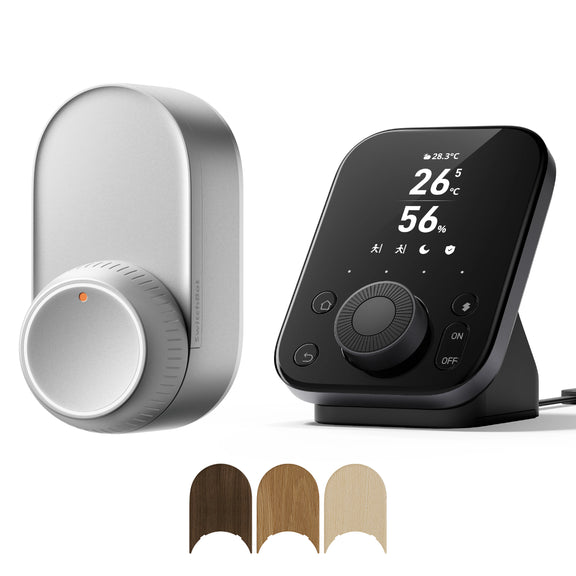Unlocking Convenience: Discover the Magic of NFC Door Locks and Their Hidden Benefits!
In a world that's increasingly interconnected, NFC (Near Field Communication) technology stands out as a game-changer in the realm of security solutions. With the rise of smart devices, NFC door locks have gained significant traction, offering a seamless blend of convenience and enhanced security. These innovative locks not only eliminate the need for traditional keys but also integrate effortlessly with our smartphones, making access as simple as a tap. In this article, we will delve into the features that make NFC door locks a preferred choice, explore their myriad benefits, and understand how they work in day-to-day scenarios.

Understanding NFC Technology
NFC technology, or Near Field Communication, is a short-range wireless technology that allows devices to exchange data when they are in close proximity, typically within a few centimeters. This technology operates on radio frequency identification (RFID) principles, which means that one device can communicate with another without the need for physical contact. While NFC is commonly associated with mobile payments and data transfer, its application in security, specifically in door locks, has revolutionized the way we think about home and business security. The inherent advantages of NFC technology include its ease of use and quick interaction capabilities, making it an attractive option for smart locking systems. Additionally, the encryption protocols used in NFC ensure that data exchanged is secure, making it less susceptible to hackers compared to traditional lock mechanisms.
Features of NFC Door Locks
NFC door locks are packed with features that enhance both usability and security. One of the most appealing aspects is the keyless entry system, which allows users to unlock doors with their NFC-enabled smartphones or key fobs. This eliminates the hassle of carrying physical keys, especially for those who often misplace them. Moreover, many NFC door locks offer remote access capabilities, enabling homeowners to grant entry to guests or service personnel even when they are not present. Additional features include audit trails that track who accessed the door and when, providing an added layer of security and accountability. Many of these locks also integrate with existing smart home systems, allowing for seamless control from a central hub or smartphone app. They often come with backup options, such as PIN codes or mechanical keys, ensuring that users are never locked out.
Benefits of NFC Door Locks
NFC door locks present numerous benefits that cater to modern lifestyles. The primary advantage is convenience — with just a simple tap of a smartphone, users can unlock their doors, which is particularly useful when their hands are full. This ease of access is especially beneficial for families, enabling children and elderly members to enter without fumbling for keys. From a security perspective, NFC door locks enhance safety with features like encrypted communication and the ability to revoke access remotely. For instance, if a friend borrows a key, you can easily remove their access once they return it. This level of control can significantly improve peace of mind for homeowners. Additionally, the integration of these locks with smart home technology allows users to create automation scenarios, such as locking doors automatically at night or when leaving the house.
How NFC Door Locks Work
The operation of NFC door locks is straightforward yet sophisticated. When an NFC-enabled device, such as a smartphone or a dedicated key fob, is brought close to the lock, a communication process is initiated. The lock's NFC reader sends a signal, and upon receiving the correct authentication response from the device, the lock’s mechanism is triggered to unlock. This process typically takes less than a second, providing a swift entry solution. Many NFC locks also feature a backup option, such as a keypad, allowing users to input a PIN if their smartphone is not available. It’s worth noting that these locks often include robust security measures such as tamper alerts and the ability to control the lock from anywhere, ensuring that users remain informed about their home security status regardless of their location.
Considerations When Choosing an NFC Door Lock
When considering an NFC door lock for your home or business, several factors should guide your decision. Compatibility is crucial; ensure that the lock can work with your existing smart home ecosystem or mobile devices. Security features are also paramount; look for locks that offer encryption and dual authentication options. The installation process can vary, so assess whether you prefer a DIY option or professional installation. Additionally, reading user reviews can provide insight into the lock’s reliability and performance in real-world scenarios. It's essential to evaluate your specific needs, including the number of users who will access the lock, to find a model that best suits your lifestyle.
Embracing the Future of Smart Security
In summary, NFC door locks represent a modern solution that seamlessly combines convenience and advanced security features. As we've explored, their ease of use, robust security measures, and integration with smart home technologies make them an appealing choice for anyone looking to enhance their home or business security. By adopting NFC door locks, you can enjoy the peace of mind that comes with knowing your property is well-protected while also embracing the convenience of a keyless lifestyle. With the many benefits they offer, it may be time to consider making the switch to NFC door locks for a smarter, safer future.














